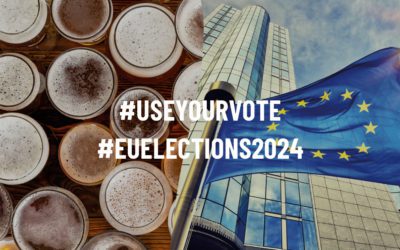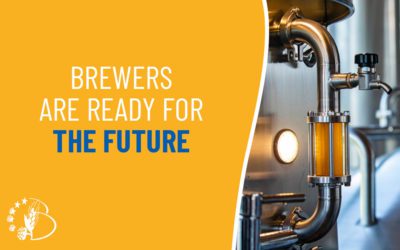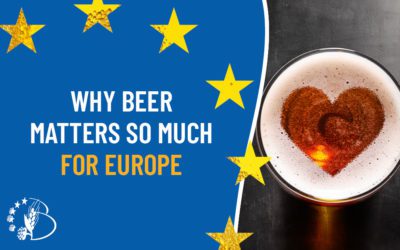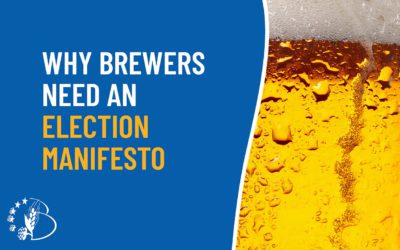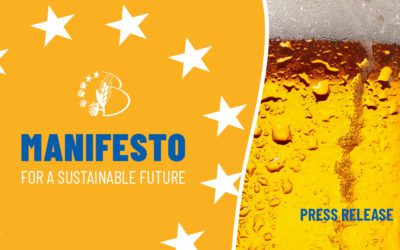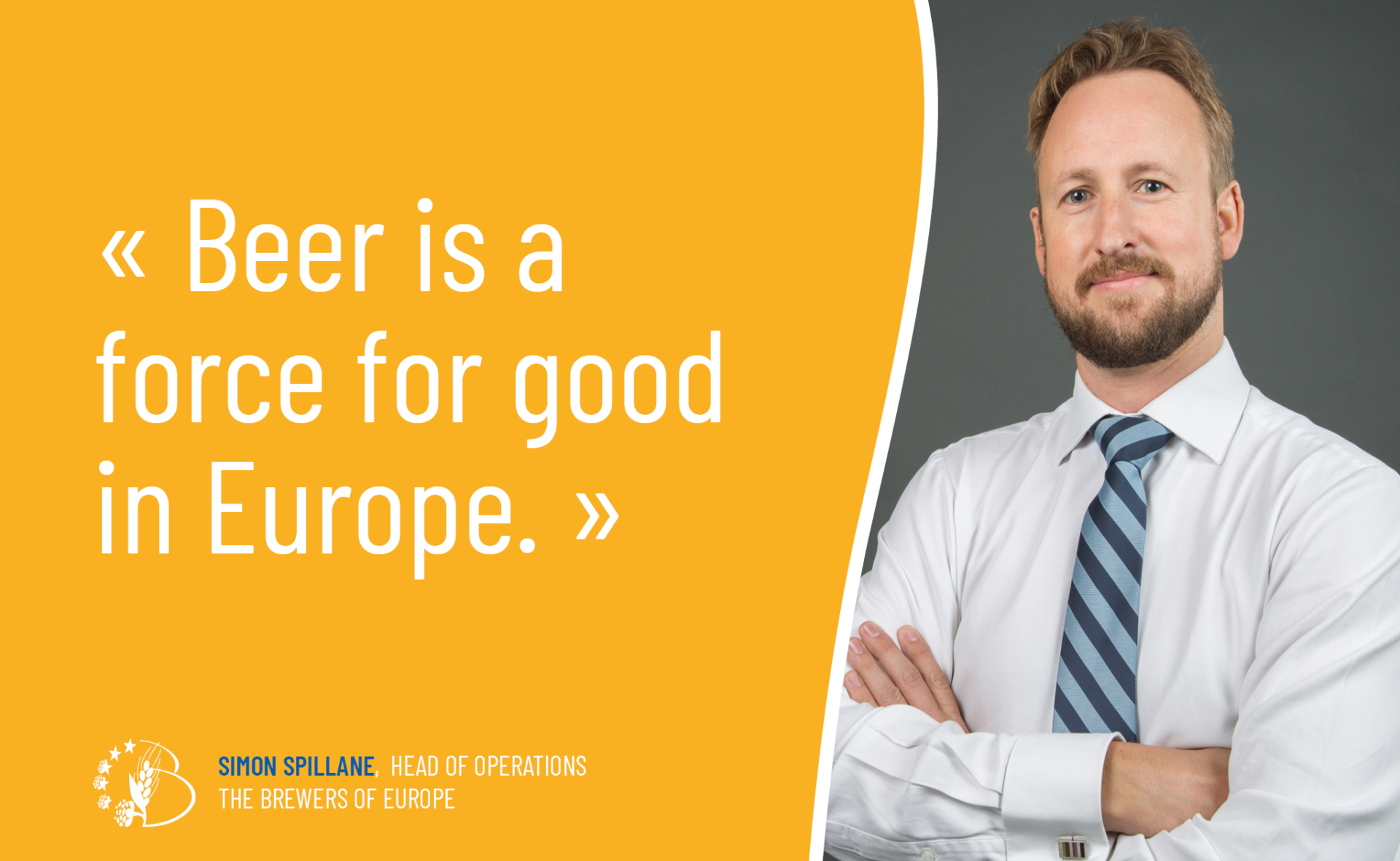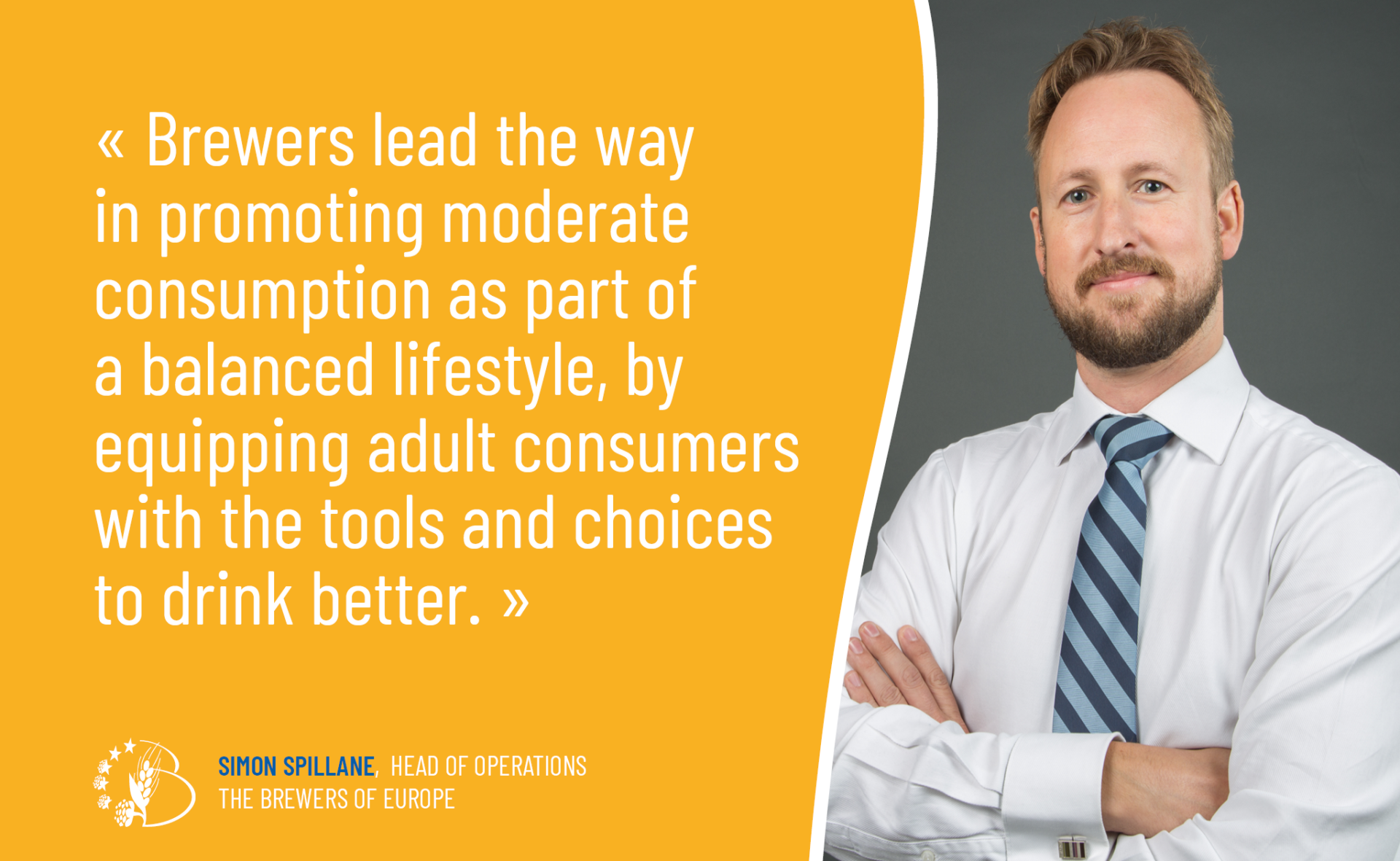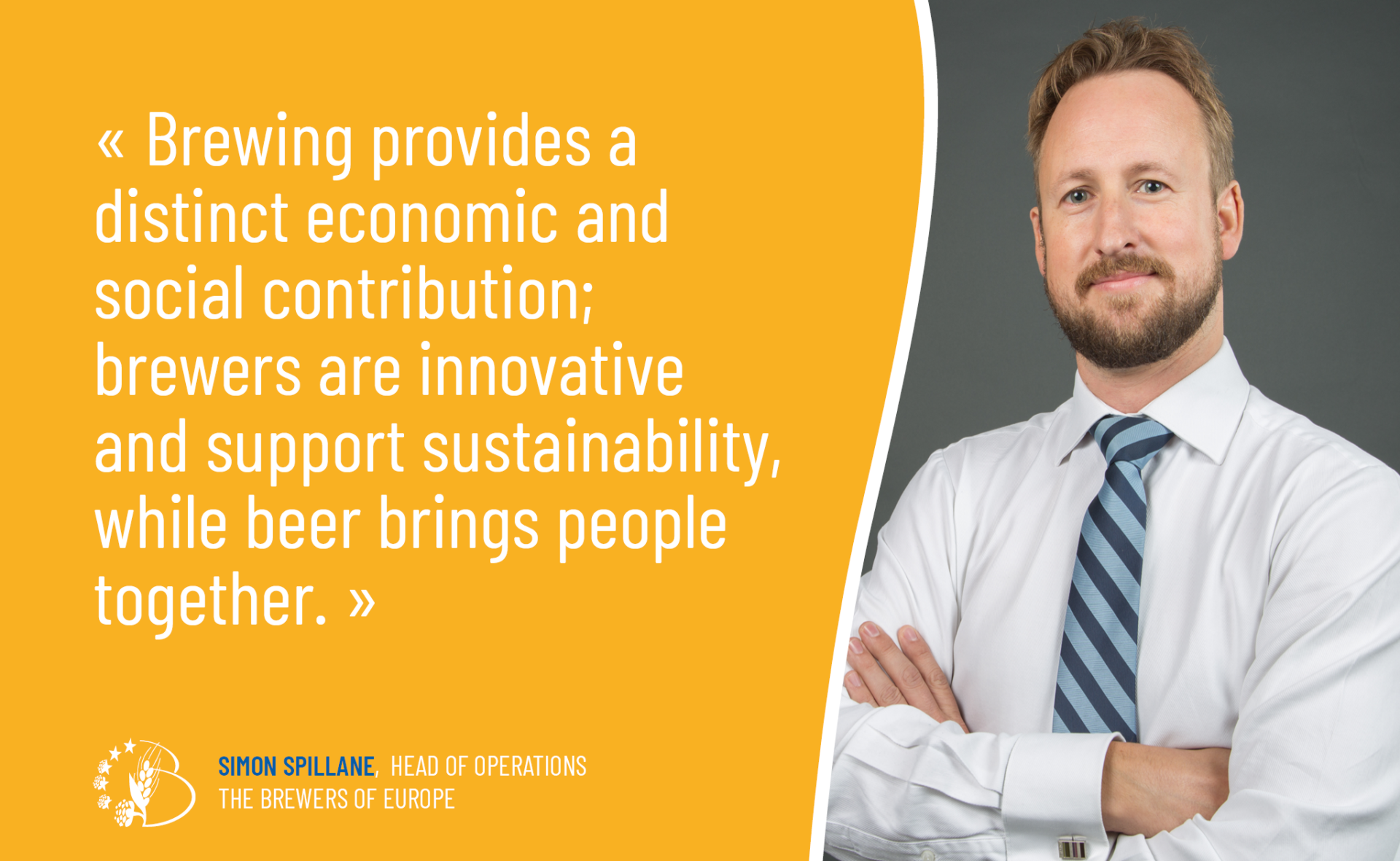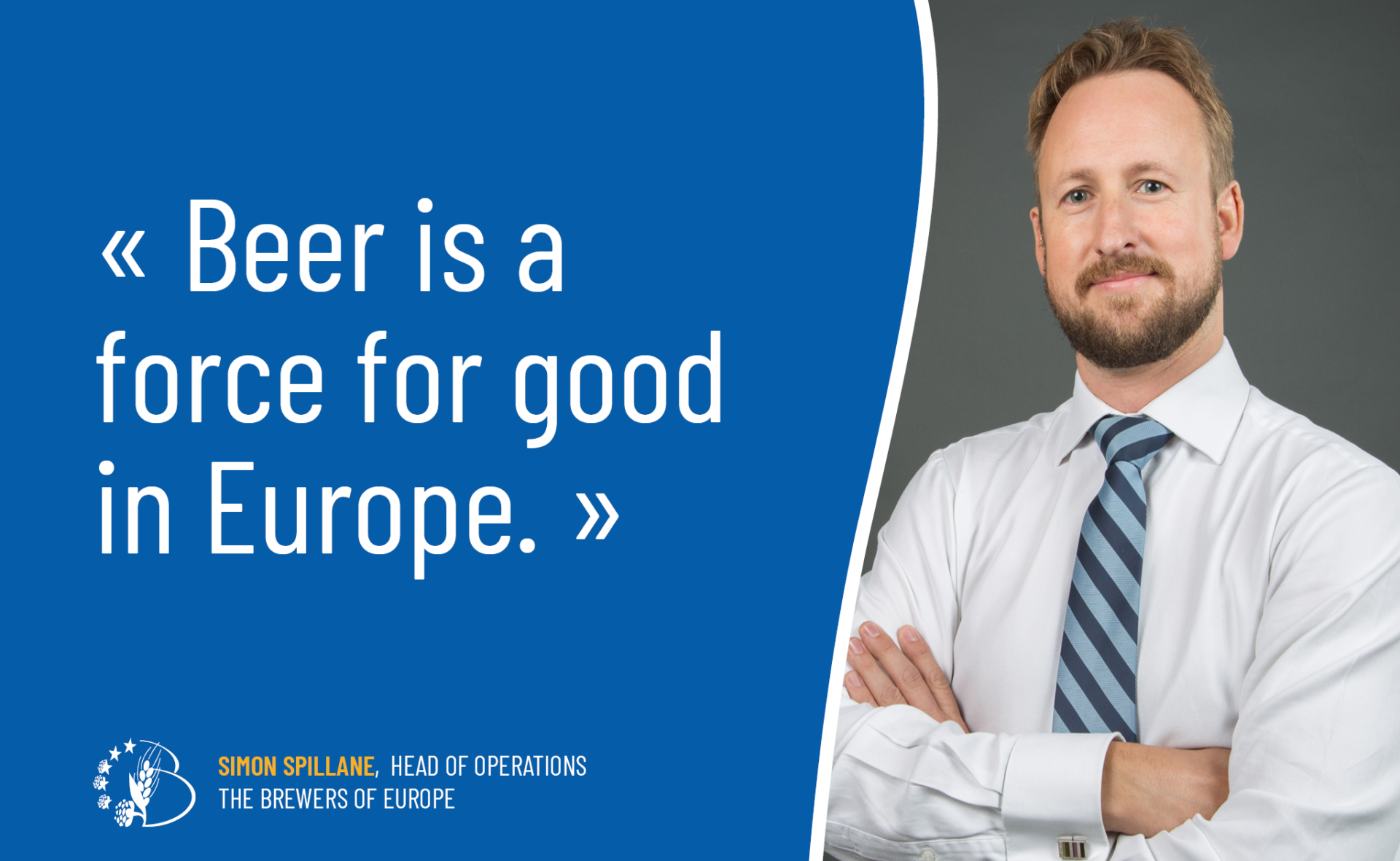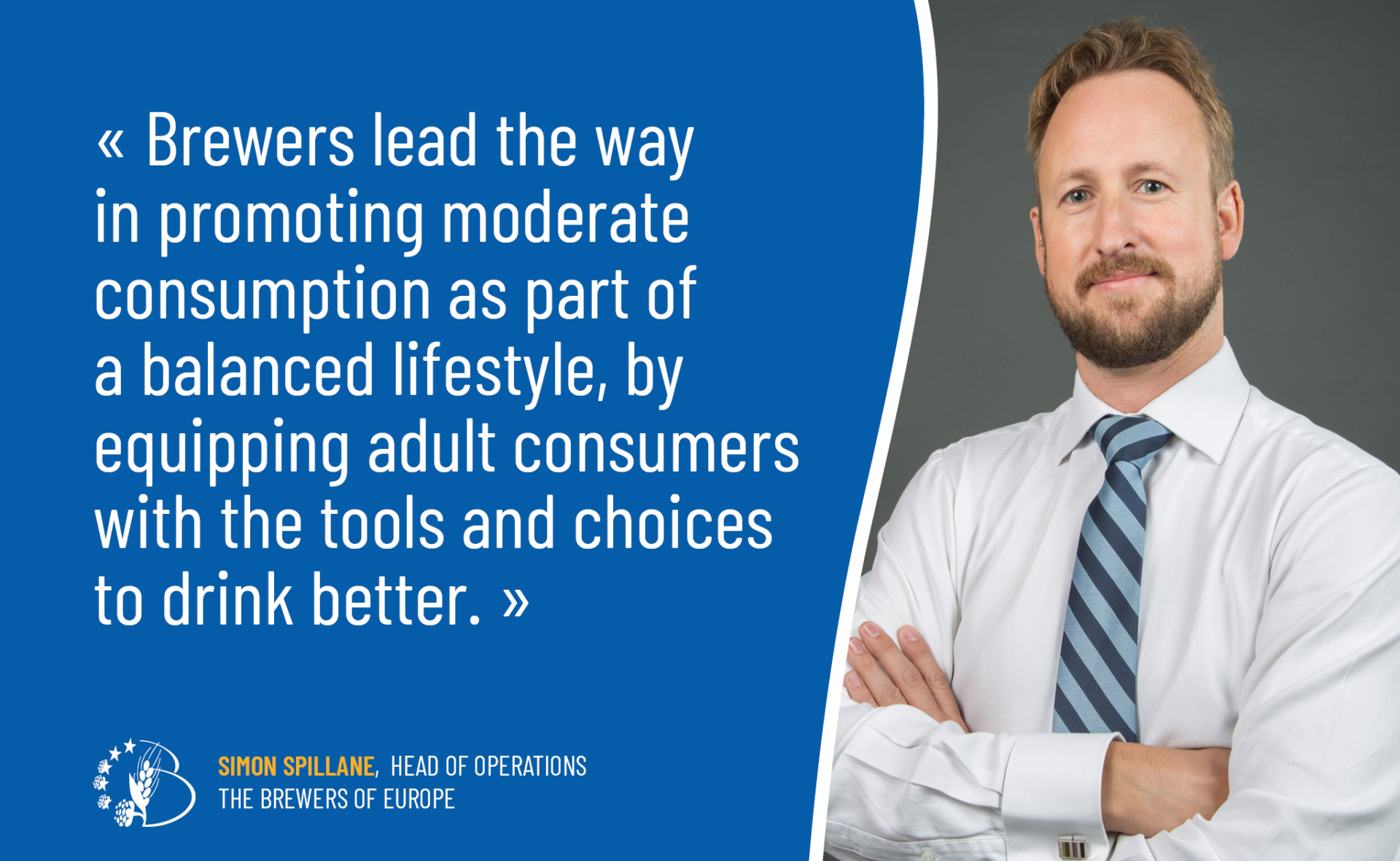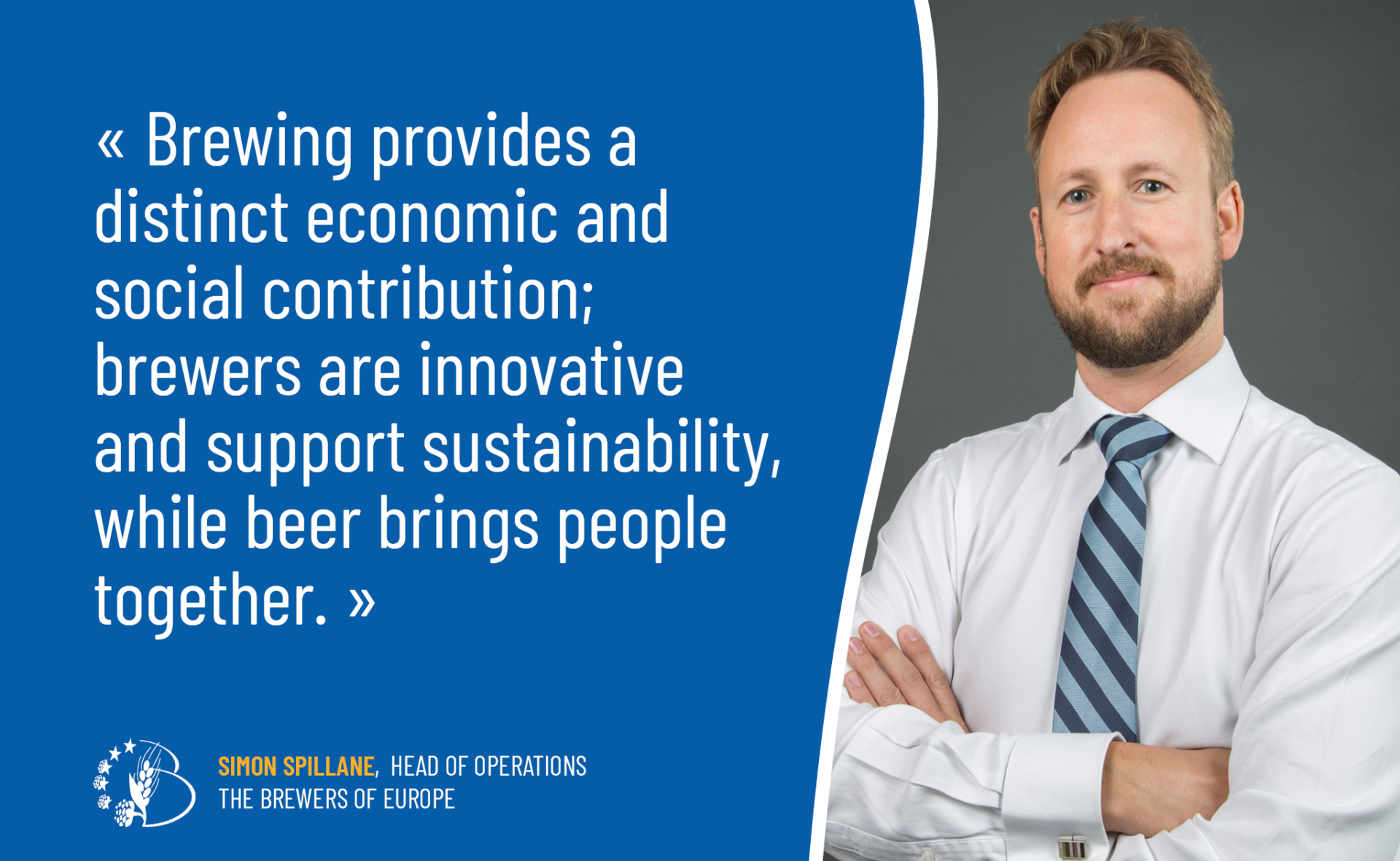
BEER – EUROPE’S CHOICE
OUR 2024-2029 MANIFESTO FOR A SUSTAINABLE BREWING FUTURE Download the Beer manifesto one-pagerConnecting people, beer is a fermented beverage brewed with ingredients of agricultural origin. Offering a diversity of choice for every occasion and consumer, including lower and no alcohol options, beer brings people together and enhances conviviality. Brewers champion moderation as, consumed responsibly, beer can be perfectly compatible with an adult’s balanced lifestyle.
With 10,000 breweries creating over 2 million jobs and €40 billion in government revenues across the European Union, beer is not just an integral part of Europe’s rich culture and heritage, but a major contributor to social, economic and sustainable development.
Ahead of the European Elections in June 2024, The Brewers of Europe offers the following recommendations to policymakers, to support Europe’s brewing sector and beer value chain, for the benefit of citizens, the environment and our economies during the upcoming legislative mandate.
STAY IN THE CONVERSATION: #BEERFUTURE
We call on the EU to
Recognise in alcohol and other policies the intrinsic nature of beer
Recognise in alcohol and other policies the intrinsic nature of beer as a lower alcohol, fermented beverage that can incite consumers towards moderating their consumption, as a time-tested, evidence-based way to align business with public health objectives.
The Brewers of Europe promotes responsible drinking.
Ahead of the European elections, we call on EU policymakers to recognise the intrinsic nature of beer as a lower-alcohol, fermented beverage that can help nudge consumers towards moderate consumption. It is a time-tested, evidence-based way to align business with public health objectives.
Collaborating with government agencies, NGOs and other stakeholders, European brewers have already shown their commitment to responsible consumption.
In 2012, The Brewers of Europe launched its European Beer Pledge, which committed brewers to taking concerted and measurable actions in three areas:
- Improving consumer knowledge of beer and responsible consumption
- Ensuring responsible advertising and marketing
- Addressing alcohol misuse
In addition to numerous campaigns and initiatives, many breweries now produce no-or-low alcohol beer options, giving consumers more alternatives. Brewers are showing once again that the beer industry has a sustainable plan for the future.
Pursue a more progressive excise tax framework that is fair to beer
Pursue a more progressive excise tax framework that is fair to beer versus stronger alcohol categories and, while respecting national subsidiarity, recognises the merits of nudging consumers towards lower alcohol beverages, the jobs created by beer in the hospitality and agriculture sectors, and the value generated by brewing from the local to the European level.
The beer industry plays a strategic role in the EU’s social, economic and sustainable development, creating over 2 million jobs, more than €50 billion in value added and generating €40 billion in government tax revenues. Beer fosters investments in the local communities where brewers operate, creating jobs along the value chain from agriculture to hospitality.
If the EU wants to sustain its 10,000 breweries and their local economies, it needs a fiscal framework that treats beer fairly. It should recognise the specifics of the brewing process and the fact that the alcohol produced by fermentation in beer costs more than two and a half times more to produce than the alcohol in hard liquor. The nature of the product and the beer value chain also means that retailing and distributing beer can be almost eight times more costly for beer than for strong alcoholic beverages.
A more progressive excise tax framework can also support public health objectives. A fiscal system that distinguishes amongst beverage types can be used to nudge consumers towards lower-alcohol beverages. This is a time-tested, evidence-based way to align business with public health objectives.
Address the disparities in packaging and packaging waste legislation
Address legislative disparities in packaging and packaging waste legislation by fostering a fair approach that recognises best practise, supports brewers’ leadership in packaging circularity and obliges other categories to step up.
Packaging, whether it’s glass bottles, aluminium cans, or kegs, is indispensable for storing, transporting and enjoying beer. That’s why brewers have innovated and invested over many years to make our packaging ever more circular and sustainable, ensuring our sector has a positive impact on the planet.
We take our responsibility seriously to minimise the environmental impact of beer packaging throughout the lifecycle by reducing, reusing and recycling. With more than half of the beer in the EU sold in reusable packaging, brewers have pioneered the setting up of reusable packaging collection systems for kegs and glass. In other countries, brewers have supported the establishment of world-leading recycling collections systems for cans and other glass bottles.
This transition requires both investment and time. That is why we call for a policy framework that fosters a fair approach by recognising brewers’ leadership, supporting best practices already in place and ensuring that all competing sectors step up in cutting waste.
Incentivise innovation and consumption of low-alcohol products
Incentivise innovation and consumption of low alcohol products by supporting policies that encourage investment and promoting the production and marketing of beer, including lower and no alcohol alternatives.
Brewers champion moderation through the very product they brew.
By exclusively using fermentation, beer will always be a relatively low-alcohol beverage. In the last ten years, the market for even lower alcohol and non-alcohol beers has more than doubled as brewers have stimulated and responded to demand for greater choice for consumers who wish to moderate their consumption whilst still consuming a tasty beer.
Let’s face it, many of the non-alcohol beers of the past simply didn’t meet the standard for consumers who still wanted a tasty beer, whilst moderating their alcohol consumption.
By investing in broadening their range of quality lower- and non-alcohol beers, brewers are not only improving the choice but are facilitating responsible consumption and helping to make drinking occasions more inclusive.
However, for these new solutions to gain further traction, we need a policy framework over the next five years that encourages further investment in the production and marketing of lower-alcohol products.
Fiscal and regulatory measures that distinguish between higher and lower alcohol products and actively promote the uptake of lower alcohol products for those adults who choose to drink can make a real change, aligning business with public health objectives.
Set proportionate alcohol labelling legislation
Develop proportionate alcohol labelling legislation that prioritises essential, objective, comparable facts, such as ingredients and calorie labelling on all alcohol beverages, whilst embracing the digital transition for further information to empower consumers.
The EU needs proportionate alcohol labelling legislation.
The Brewers of Europe are ProudToBeClear and we are committed to empowering consumers with the facts they need to make informed decisions.
In 2015, European brewers committed to rolling out ingredient listing and calorie labelling on beers across the European Union, formalising this promise through a memorandum of understanding signed with the EU Commissioner for Health and Food Safety in 2019.
Nowadays, 95% of beer sold in cans and bottles is labelling ingredients, while 88% of those containers are labelling energy values in the same manner that other foods and non-alcoholic drinks do.
As we renew our efforts to provide clear information to consumers, we need policymakers to set proportionate alcohol labelling legislation that prioritises essential, objective, comparable facts, while embracing the digital transition for further information to empower consumers.
Promote a legislative framework on sustainable food systems that encourages innovation and boosts technological investments
Promote a legislative framework on sustainable food systems that encourages innovation and boosts investment in decarbonisation technologies for the entire agri-food chain, including the brewing sector, to accelerate the green transition towards meeting the EU’s 2030 climate goals.
The EU should promote a legislative framework on sustainable food systems that encourages innovation and boosts investment in decarbonization technologies for the entire agri-food chain, including brewing.
The Brewers of Europe’s mission is to have a positive impact on society, people and the planet. As part of our ‘grain to glass’ approach, we have transformed our brewing processes, our supply chains and how beer is consumed – by putting sustainability at the core of our operations.
Circularity is one of the main driving forces behind the green transition of the brewing sector, together with the aims of the European Green Deal.
The Brewers of Europe remain committed to the EU’s 2030 climate goals and to speeding up the creation of more sustainable food systems. And a supportive policy framework that fosters innovation and promotes technological investment remains essential in order to meet the ambitious targets set by the EU.
Develop an enabling policy framework that maintains Europe as a leading beer-producing region
Maintain Europe’s position as a leading beer-producing region by removing unnecessary bureaucratic burdens, cultivating a robust industrial policy that supports brewers in the twin transition, and broadening the dialogue on the future of EU agriculture to include the entire agri-food chain, thereby recognising beer and its raw ingredients as strategic products for a competitive and sustainable EU agricultural policy.
For centuries, European brewers have preserved and fostered the art of beer brewing, elevating it to a characterising part of European culture. Driven by heritage and innovation, the sector now accounts for:
- 10,000 brewers across the EU
- Over 2 million jobs
- 40 billion euros in government tax revenues
To continue to have a positive impact on the citizens, the environment, and the European economy, the beer industry needs to be able to count on an enabling policy framework.
It is therefore crucial that during the upcoming legislative mandate, policymakers remove unnecessary bureaucratic burdens, and cultivate a robust industrial policy that supports brewers in the twin green and digital transition. Particular attention should also be given to broadening the dialogue on the future of EU agriculture to ensure the impact of and on the entire agri-food chain in considered. Doing so would thereby recognise both beer and its raw ingredients as strategic products for a competitive and sustainable EU agricultural policy.


